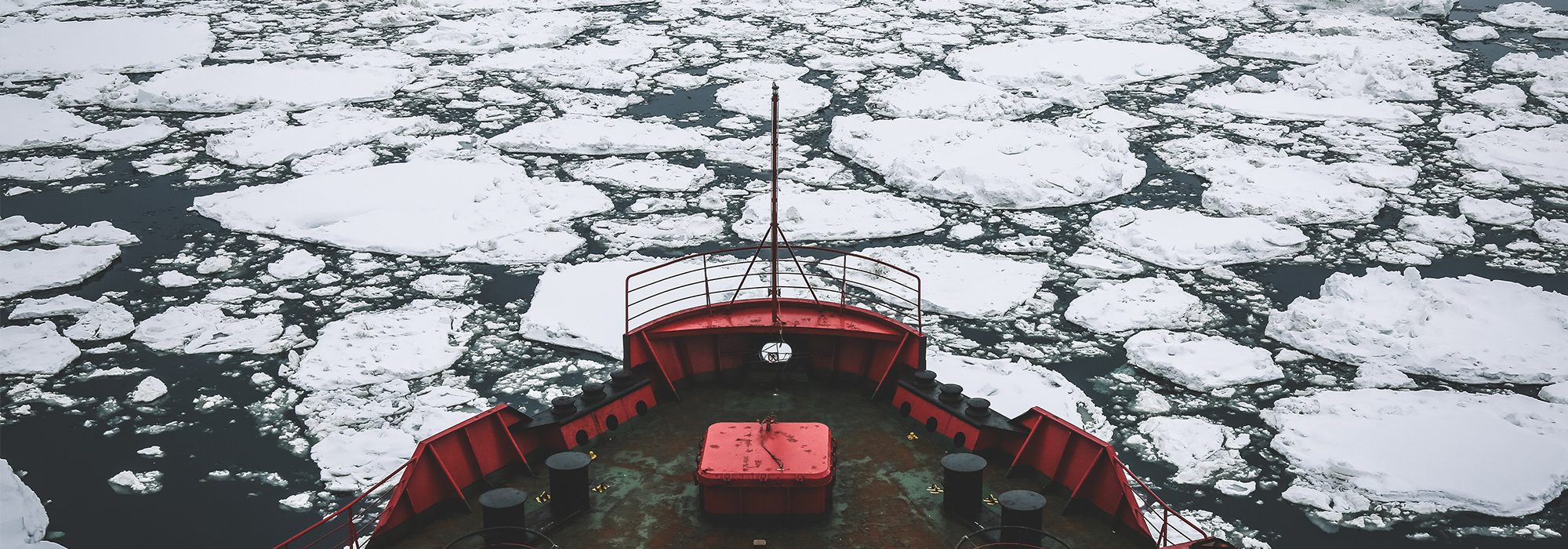
I am writing this review from “the Bay of God’s Mercy” on the northern extremity of Banks Island in the western Arctic. We are almost one thousand kilometres above the Arctic Circle and I have retreated to my tent to escape the wind.
This remote bay is the icy resting place of HMS Investigator, the fabled British vessel from the deck of which Captain Robert McClure discovered the western entrance to the Northwest Passage in 1851. Her captain sought God’s mercy in this bay, but was cruelly frozen into the pack ice for two long winters, forcing his crew to abandon their entombed ship — a lasting tribute to Arctic adventure, courage, hubris and misery.
This a fitting place to read and review Shelagh Grant’s fine new book Polar Imperative, an important contribution to the study of the Arctic resulting from her lifetime of Arctic research and experience.
The Far North is an essential part of our national psyche and our country has played a crucial role in the region’s history. As Canadians we tend to take our sovereignty over Arctic as a given, but it hasn’t always been so. And there is a rich and fascinating history behind it all, to which Grant does immense justice.
In fact, this book is a “must read” for every Canadian who is interested in the history of the Arctic: Grant recounts the fascinating story of how Canada — a modest and sparsely populated country — successfully asserted sovereignty over the entire Arctic Archipelago in the face of considerable odds. In particular, her comparative assessment of the recent pronouncements of Canadian, American, Russian and European governments on Arctic issues should be compulsory reading for all Canadian students of public policy.
The precise tone of this work is established in the opening paragraph, where Grant examines the etymology of the word Arctic, which is derived from the Greek word arktos, meaning bear, describing the land and seas lying to the north of the constellation Ursa Major, the Great Bear.
Her essential focus is Arctic sovereignty and she explores this much-debated topic from a uniquely and unabashedly Canadian perspective. She begins with the important history of the first inhabitants of the North American Arctic, the Paleo-Eskimos who were ultimately and not necessarily peacefully succeeded by the Thule and modern Inuit cultures.
The book then examines European history in the context of efforts by successive monarchs and merchants to lay claim to the region. This includes a comprehensive overview of the efforts of the British Admiralty as well as Sir John A. Macdonald’s attempt to “acquire” the Arctic islands. Building out on that, Grant reviews the detailed administrative and diplomatic efforts undertaken by successive Canadian governments in the century that followed.
As in all the best history books, there are some singular characters who bring this past to life.
One such personality is O.D. Skelton, a dean of arts at Queen’s University who was recruited by Prime Minister Mackenzie King as his undersecretary of external affairs. Skelton was a staunch nationalist, a skilled diplomat and an extraordinary civil servant. He was also a very able negotiator who successfully out-manœuvred everyone else in the Arctic, including the Americans.
Under his able and steady hand, Canada slowly but surely affirmed its effective occupation over the Arctic Archipelago. It is important to note that while Macdonald initially negotiated Canadian dominion over the Arctic islands, it was Prime Minister Wilfrid Laurier and his minister of the interior Clifford Sifton who defined the strategy to consolidate that ownership. It was Skelton, however, who “perfected Canada’s title” in the time between the early 1920s and the early 1930s. And his remarkable contribution deserves to be much more than a footnote in our national history.
It’s worth noting that those who are expecting a swath of material on the famed Franklin Expedition will be disappointed. Grant has correctly avoided the intrigue and controversy surrounding the Franklin Expedition, because the quest for the Northwest Passage in the mid-19th century was a British rather than a Canadian enterprise.
Grant has a more specific objective with this book: detailing the account of Canada’s steady refinement of its title to the Arctic Archipelago between 1870 and 2010.
As such, Polar Imperative is informative and thorough. The author’s familiarity with the Canadian Arctic is evident throughout, as is her love of the North and its people.
The prose style is slightly staccato from time to time, but this is a small point. Perhaps it is unavoidably so, as Grant sifts through a lifetime of Arctic research and knowledge.
This book is a “must read” for every Canadian who is interested in the history of the Arctic: Grant recounts the fascinating story of how Canada — a modest and sparsely populated country — successfully asserted sovereignty over the entire Arctic Archipelago in the face of considerable odds.
While Grant is reasonably evenhanded in her examination of the policies that have been pursued by successive Canadian governments, she fails to recognize the achievements of the Harper government in refocusing our nation on the importance of the Arctic. This is perhaps a predictable criticism given my position, but I think it fair to note that the Harper government and indeed the Prime Minister himself have shown a renewed vigour and excitement for Canada’s role in the Arctic. No one would disagree that much remains to be done.
Overall, Polar Imperative can be favourably contrasted with another recent offering, The Future History of the Arctic, by the British academic Charles Emmerson. His is a good read also, but Grant’s book is closer to home.
Emmerson’s focus is a much broader survey piece on each of the Arctic powers: Canada, the United States, Russia, Norway, Iceland and Greenland. He attempts to explore both the history and the future public policy challenges facing each of the six Arctic countries, but such a sprawling scope, inevitably, overwhelms a reader.
Furthermore, while his treatment of Canada is neither unfair nor inaccurate, it is superficial and faintly dismissive. He touches only lightly upon our unfailing if sometimes accidental efforts to assert our sovereignty over the Arctic Archipelago. Remarkably, in his book, the history of Canada and the Arctic is included only as an element in a chapter about the “American Arctic.”
If you are a Canadian and you are proud or curious — or both — about our country’s fascinating Arctic journey, Grant’s book is an excellent choice. She has brought to life the history of how Canada has asserted its sovereignty over the Arctic since 1870 — with a clarity of purpose of which both Sir John A. Macdonald and O.D. Skelton would be proud.
Photo: Shutterstock







